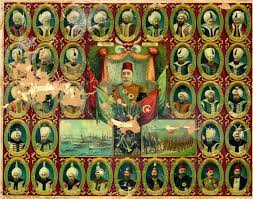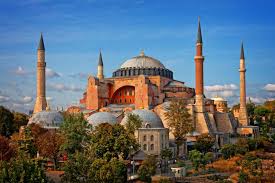The Ottoman Empire was one of the longest-lasting and most influential empires in history. Here are key points about its history, culture, and impact:
Origins and Expansion
- Foundation: The Ottoman Empire was founded at the end of the 13th century in northwestern Anatolia by Osman I.
- Expansion: It expanded significantly under rulers such as Mehmed the Conqueror and Suleiman the Magnificent. By the 16th and 17th centuries, the empire controlled much of Southeast Europe, Western Asia, and North Africa.

Key Figures
- Osman I: Founder of the empire.
- Mehmed II: Known as Mehmed the Conqueror, he captured Constantinople in 1453, marking the end of the Byzantine Empire and establishing Istanbul as the capital.
- Suleiman the Magnificent: His reign (1520-1566) marked the peak of the empire’s military, political, and economic power.
Administration and Society
- Government: The empire was a complex system of governance with a sultan at its head, supported by a sophisticated bureaucracy and a military system called the Janissaries.
- Millet System: The empire allowed a degree of religious and cultural autonomy to various religious communities, known as millets.
- Law: The legal system combined Islamic law (Sharia) with customary and imperial laws.
Culture and Achievements
- Art and Architecture: The Ottomans were known for their distinctive architecture, including the Blue Mosque and the Topkapi Palace. They also contributed to calligraphy, manuscript painting, textiles, and ceramics.
- Science and Learning: The empire supported scholars and scientists, contributing to advancements in astronomy, medicine, mathematics, and geography.
- Literature: Ottoman literature flourished with poetry, prose, and historical writing. The divan poetry tradition was particularly significant.

Decline and Fall
- Gradual Decline: The empire began to decline in the late 17th century due to a combination of military defeats, economic problems, and administrative inefficiencies.
- 19th Century Reforms: Attempts were made to modernize and reform the empire through the Tanzimat reforms, but these were not enough to halt the decline.
- End of the Empire: The empire officially ended after World War I, with the establishment of the Republic of Turkey in 1923 under Mustafa Kemal Atatürk.
Legacy
- The Ottoman Empire left a lasting legacy in the regions it ruled, influencing culture, architecture, cuisine, language, and governance in Southeast Europe, the Middle East, and North Africa. The borders and conflicts of many modern states in these regions are deeply rooted in the history of the Ottoman period.
4o
